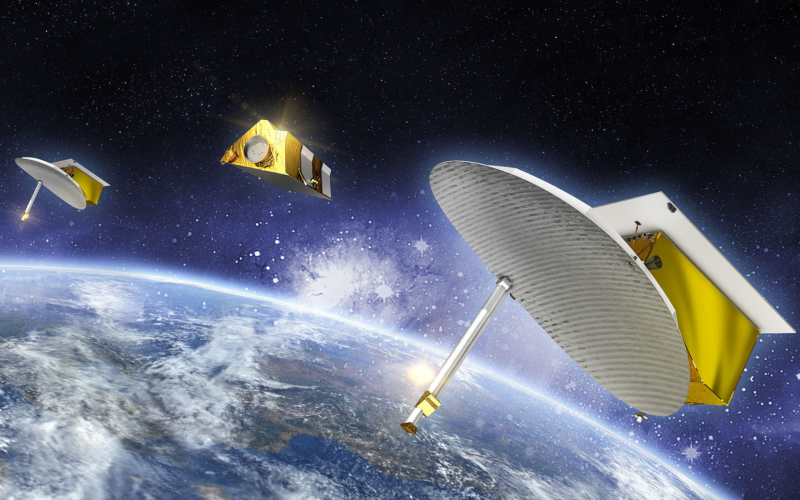Germany’s Bundeswehr is grappling with significant setbacks in one of its crucial space projects, as two out of three newly launched spy satellites under the “SARah” program have malfunctioning antennas. This issue threatens to undermine the project’s core mission of enhancing the military’s reconnaissance capabilities.
In a confidential briefing to the Bundestag, Defense Minister Boris Pistorius informed lawmakers that two satellites launched at the end of last year have failed to deploy their radar sensor-equipped antenna masts, rendering them incapable of providing radar images. The manufacturer, Bremen-based company OHB, has been attempting unsuccessfully for over six months to resolve the issue through software resets and satellite maneuvering to induce vibrations that might free the stuck antennas.
The “SARah” program, integral to the Bundeswehr’s strategic reconnaissance modernization, aimed to deliver high-resolution images of Earth’s surface and 3D relief maps from space. The satellites were launched in late 2023 by U.S. firm SpaceX.
Initially hailed as a milestone in bolstering military surveillance capabilities, the project’s progress has now been marred by frustration within procurement agencies and the ministry. A senior defense official disclosed to the Defense Committee that operationalizing the SARah system might not be feasible due to the persistent technical challenges. Although older Bundeswehr satellites continue to provide surveillance images, their extended operational life is nearing its end.
The Defense Ministry emphasized OHB’s responsibility for the satellite malfunctions, highlighting that the satellites remain the firm’s property until they are fully operational, as stipulated in the procurement contract. OHB has been instructed to submit an updated plan by early July outlining steps to rectify the situation. Failure to do so could compel OHB to fulfill its contractual obligation to manufacture two replacement satellites.
The failure in space has dealt a severe blow to OHB, potentially leading to substantial financial repercussions if replacement satellites are required. Sources familiar with the matter indicated that OHB did not conduct ground testing of the antenna functionality prior to launch, a departure from standard practice in satellite manufacturing.
Despite initial setbacks, Germany’s SAR-Lupe satellite reconnaissance system, operational since 2007, remains a significant asset, providing critical intelligence in military operations such as in Afghanistan. The SARah system was intended to replace SAR-Lupe, offering enhanced imaging capabilities with centimeter-level resolution.
However, delays plagued the SARah project, with the Airbus-built satellite, launched in summer 2022, showing no signs of similar issues. The concerns primarily surround the two OHB-manufactured satellites launched in December 2023, exacerbating worries within European space management circles about reliance on U.S. launch services.
While Germany’s SAR-Lupe system continues to function beyond its expected lifespan, technical challenges including aging reaction wheels for orientation control and diminishing hydrazine fuel for orbit maintenance are increasingly evident. Electronic components are also prone to heightened vulnerability from prolonged exposure to space radiation.
The SARah system’s radar capabilities were designed to offer advantages over optical satellites by enabling all-weather, day-and-night imaging. Commercial entities such as Capella in the U.S. and Iceye in Finland also provide radar satellite services, illustrating the competitive landscape in satellite-based surveillance.
As developments unfold, the Bundeswehr’s ability to maintain and enhance its reconnaissance capabilities remains a critical concern amid the evolving geopolitical landscape.








